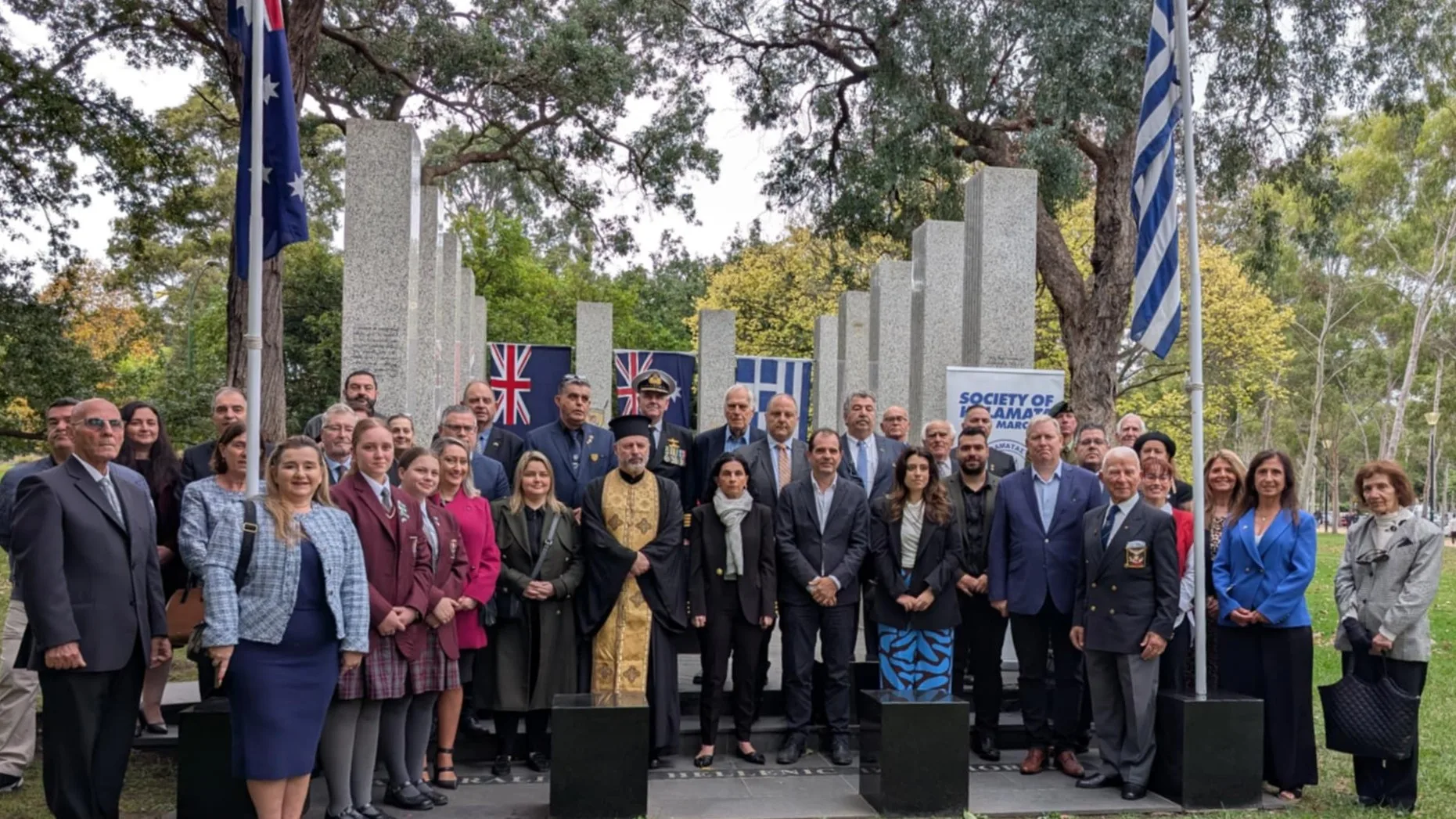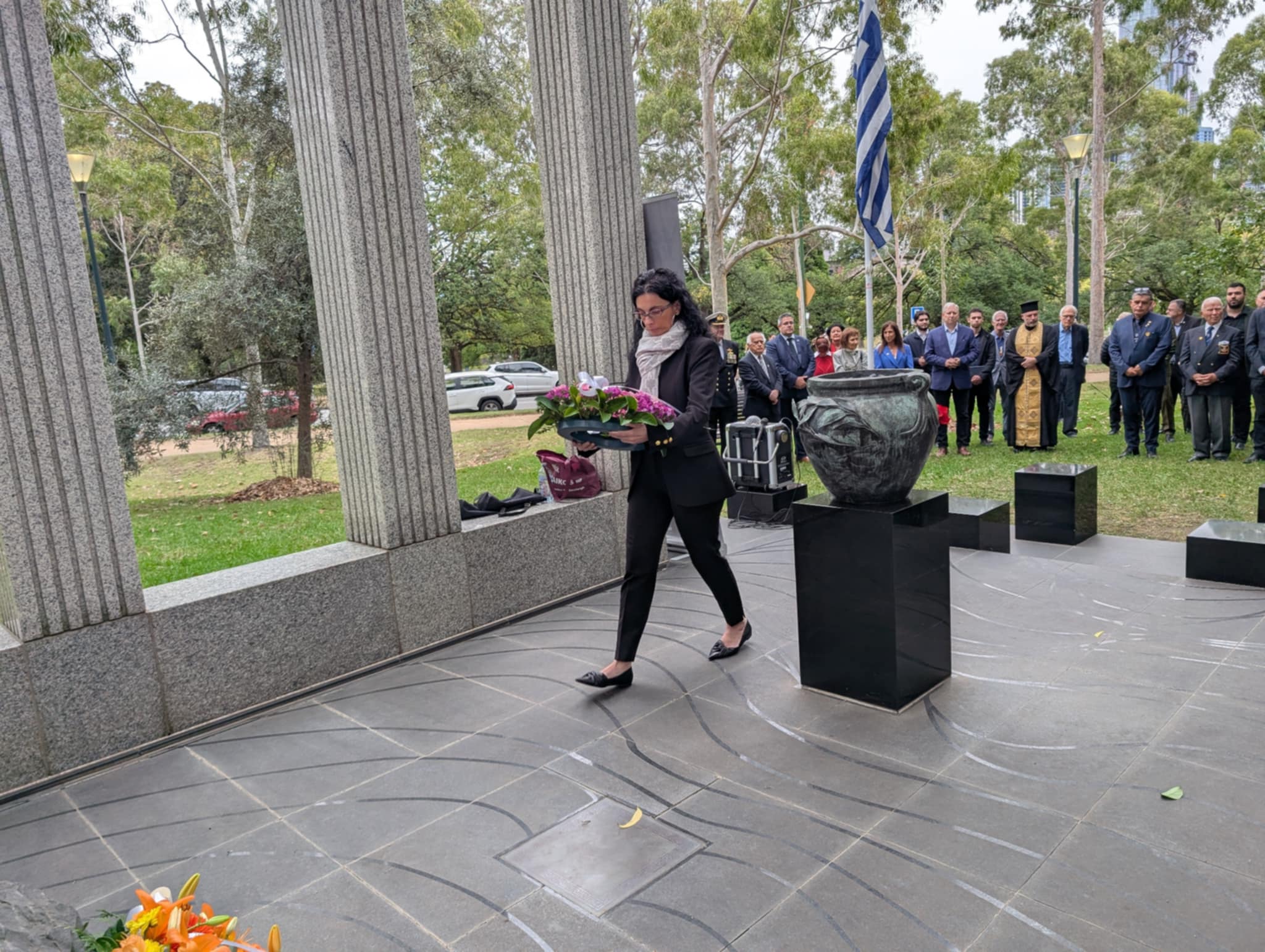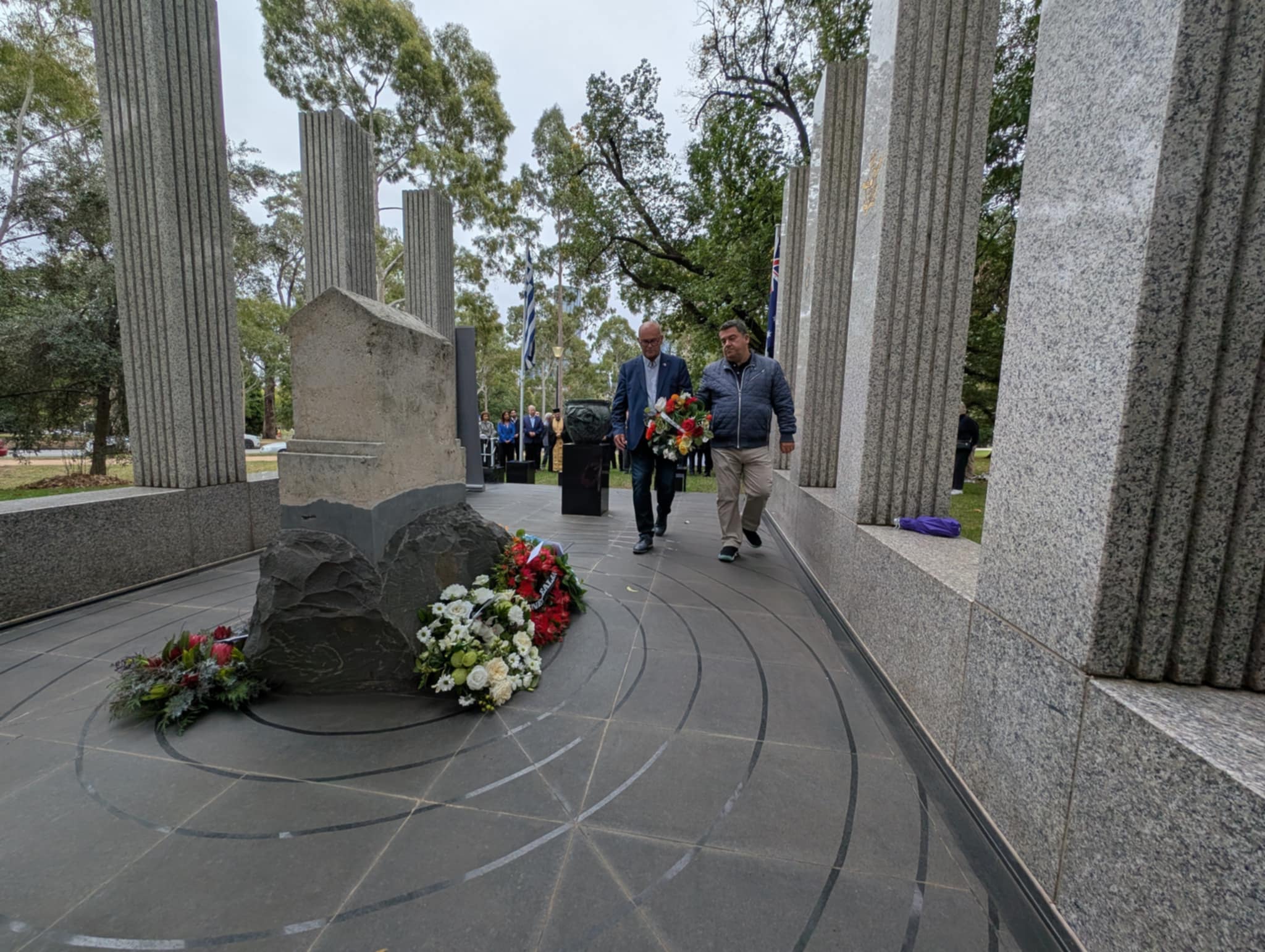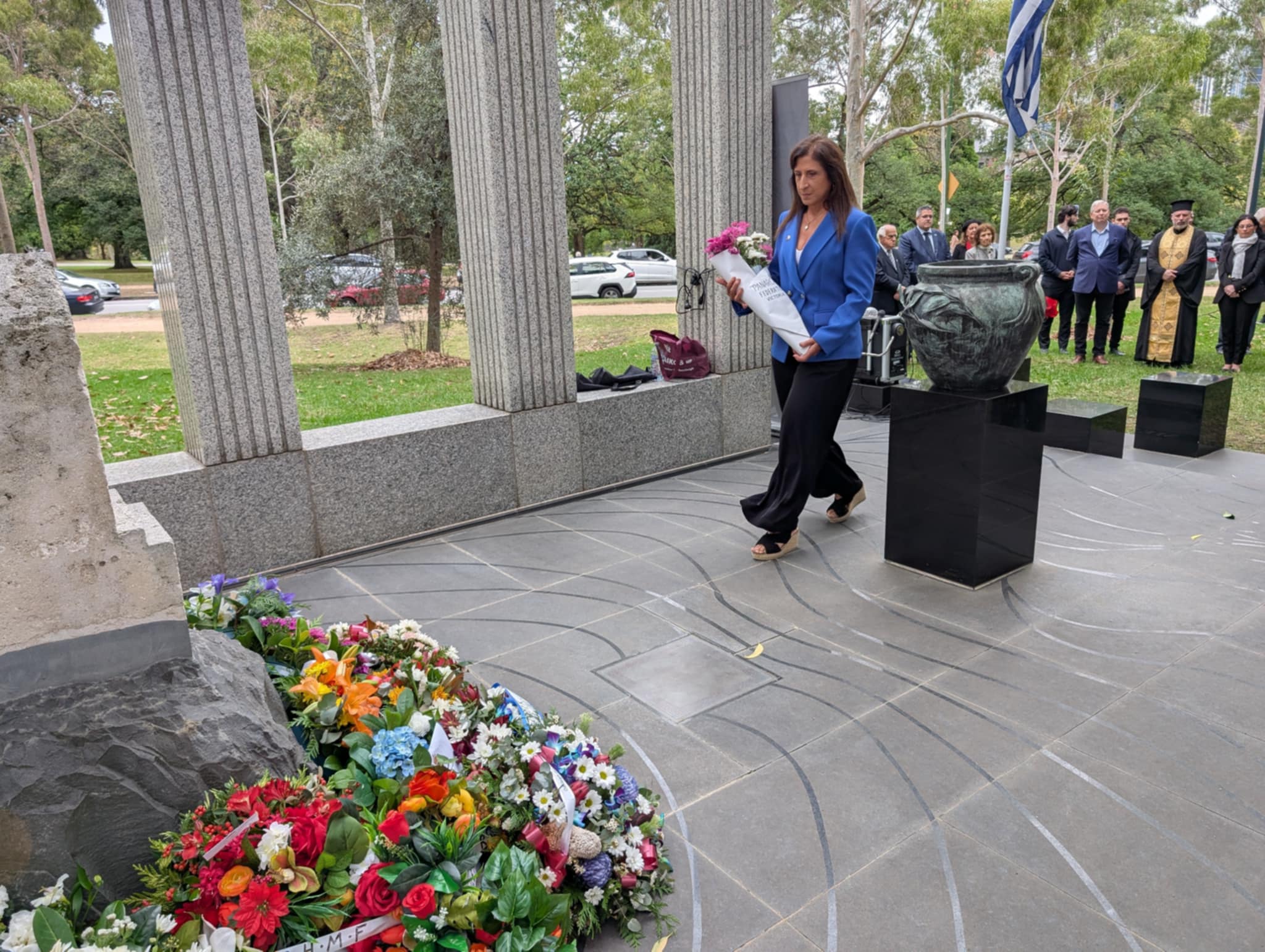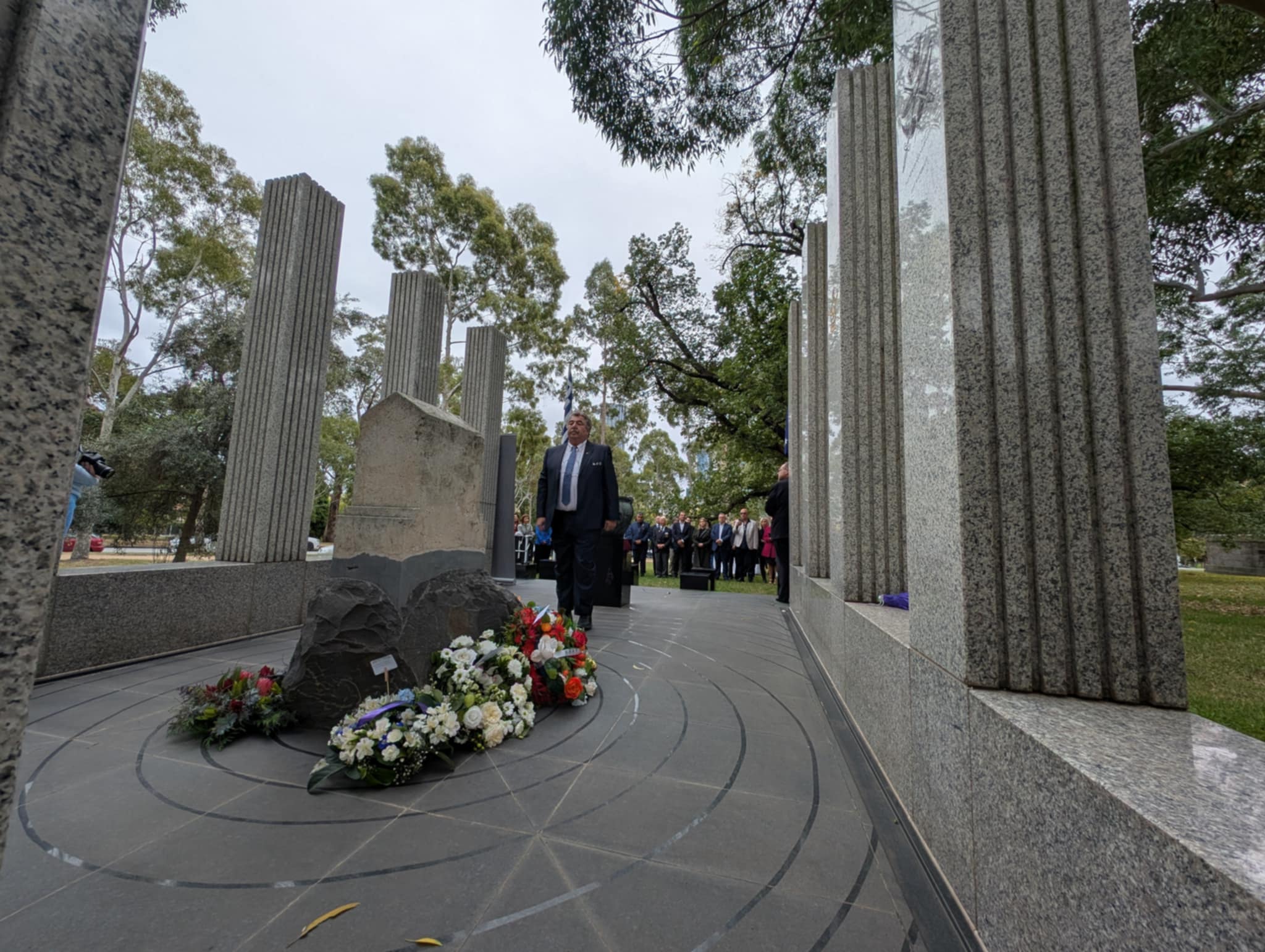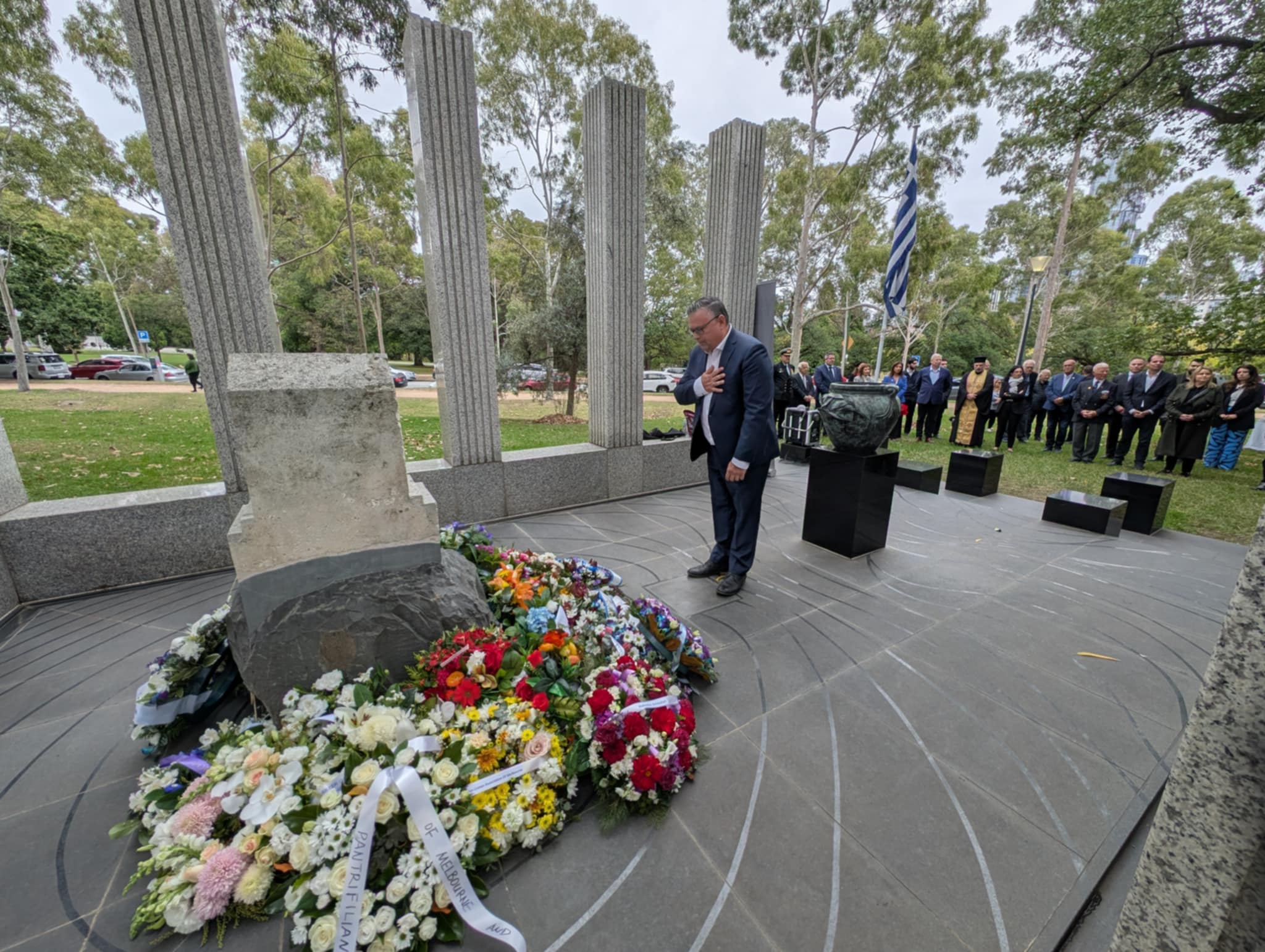A sombre crowd gathered at the Australian Hellenic War Memorial near Melbourne’s Shrine of Remembrance on Sunday, April 27, to honour the ANZACs and Allied soldiers who fought and fell in the Battle of Kalamata 84 years ago.
The commemorative service and wreath-laying ceremony, organised by the Society of Kalamata ’23 March’, paid tribute to the thousands who served during the German invasion of Greece in 1941. The event was emceed by Peter Andrinopoulos, Vice President of the Society, who acknowledged the descendants of soldiers amongst the crowd.
Sam Vlachos, President of the organising committee, described the Battle of Kalamata as “a deeply significant chapter in our shared history.”
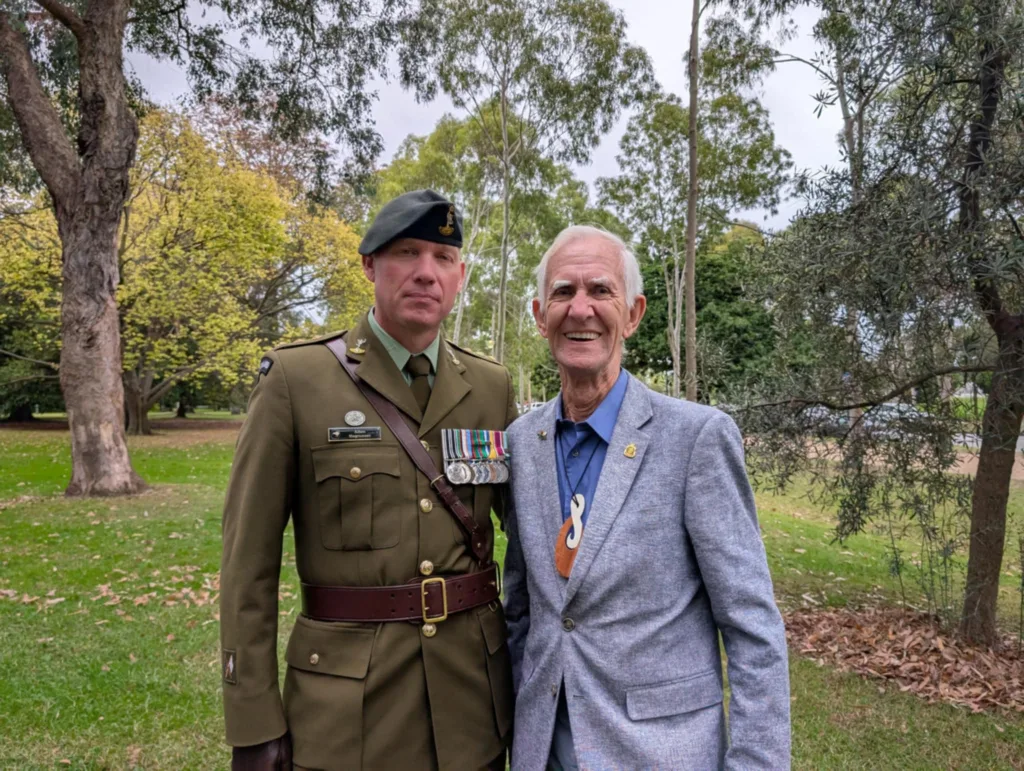
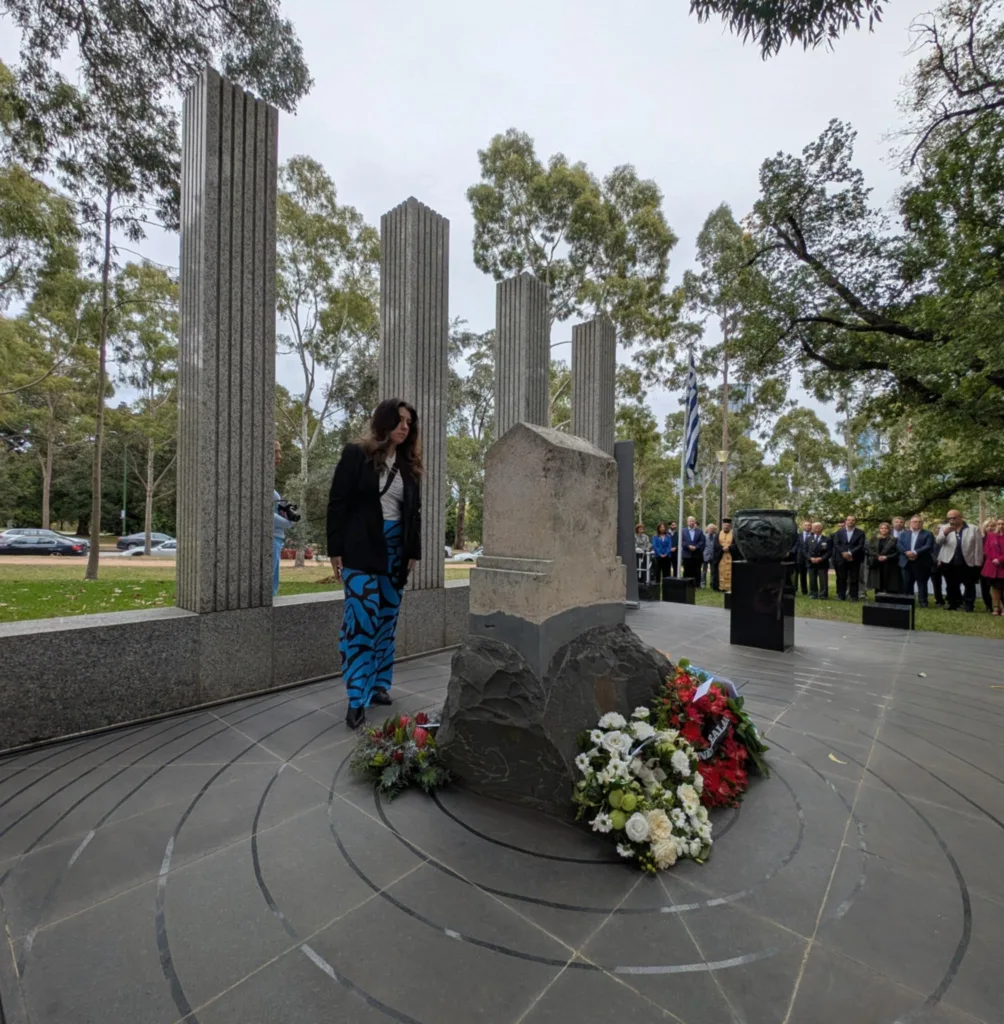
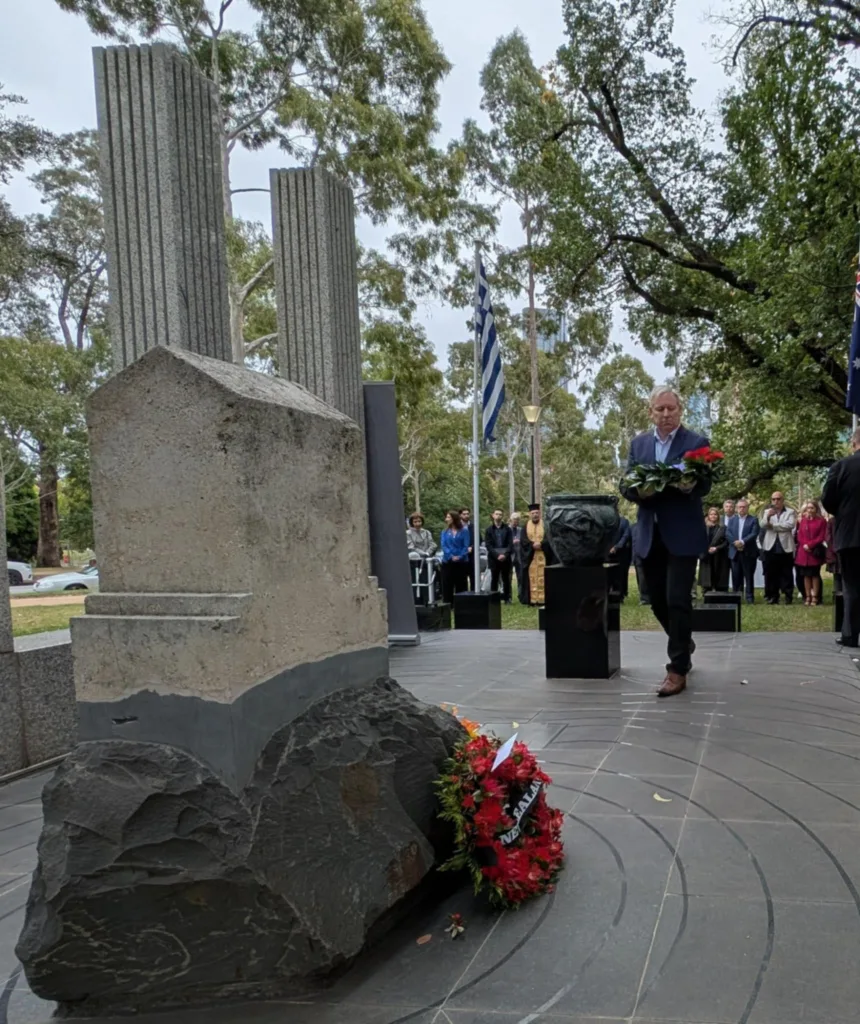
The Battle of Kalamata, fought on April 28, 1941, marked one of the final moments of the Greek Campaign in World War II. About 10,000 Allied soldiers were captured, enduring horrific conditions as Prisoners of War. The resilience and camaraderie they showed left a legacy.
Jim Grivokostopoulos (Grivas), President of the Federation of Messinia, spoke of the personal connection many still feel.
“Knowing our history and listening to the stories is important. Our parents are of the age that they can’t come here anymore, and that’s how I got involved in the Pantrifilian Association,” Mr Grivokostopoulos told The Greek Herald, referring to his involvement in supporting Greek regional communities in Australia.
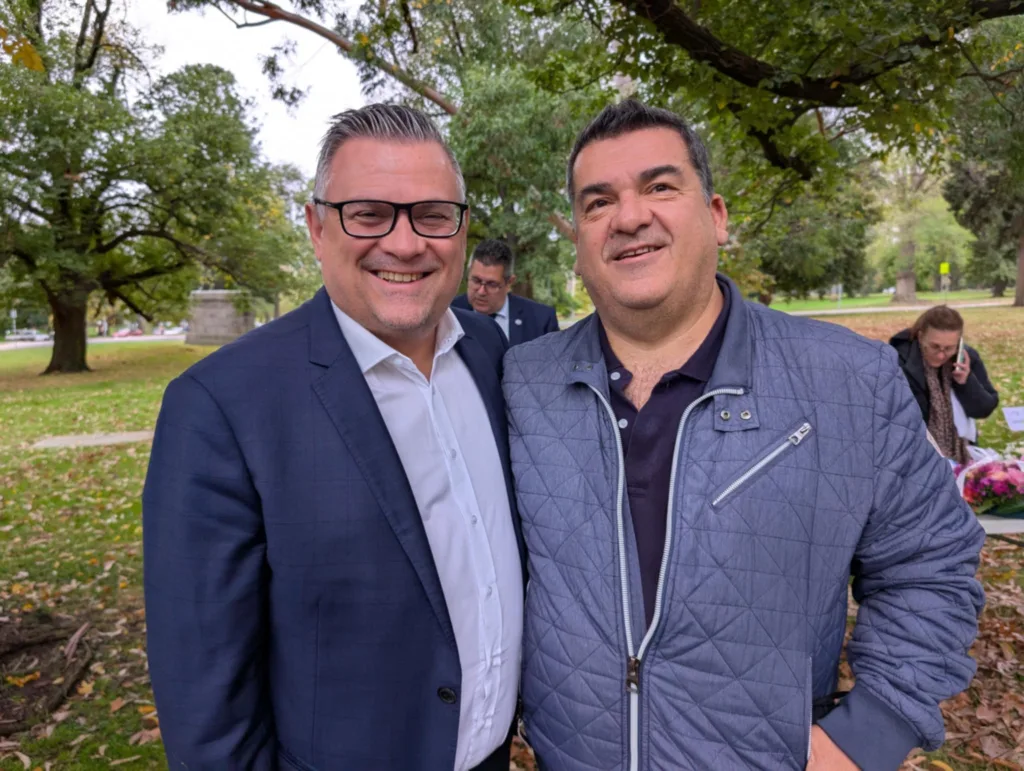
Longtime advocate John Pantazopoulos, patron of the Australian Hellenic War Memorial, reflected on childhood memories of hearing wartime stories from his family.
“Many Allied soldiers escaped to the mountains around Trifilia. Some surrendered out of fear that locals would suffer reprisals if they stayed,” he said.
“Growing up, we heard about the Angloi — everyone called them that though they were ANZACs — and later I realised there was much more to the story than just the Battle of Crete. These battles across the mainland are all linked; one would not have happened without the other.”
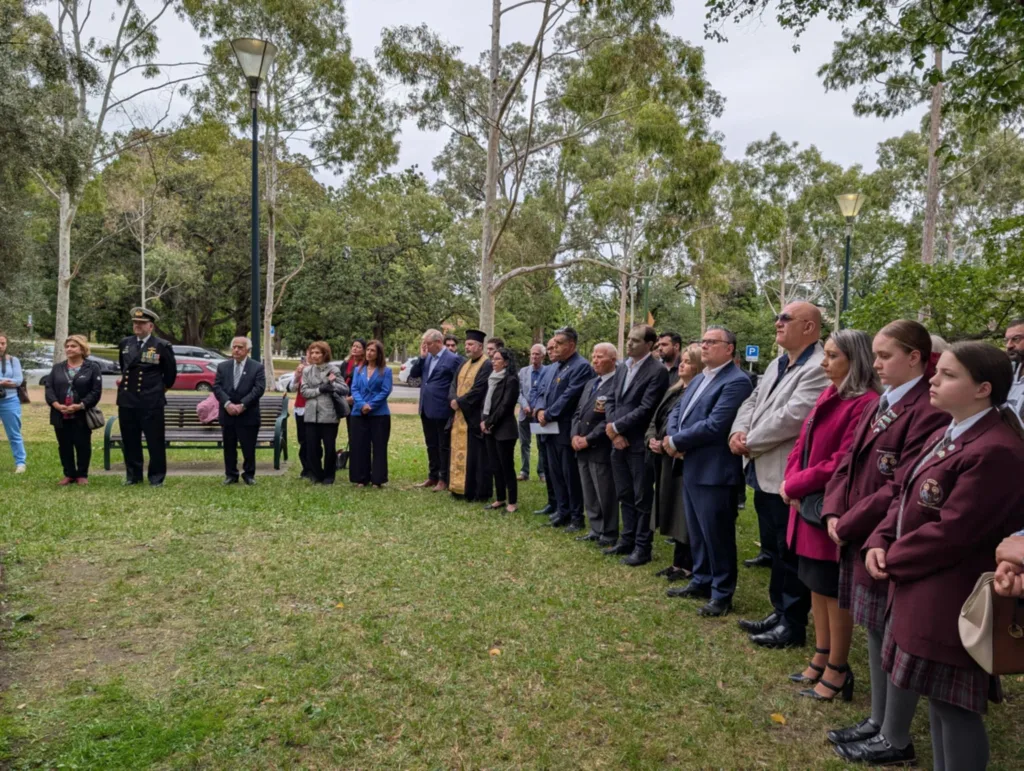
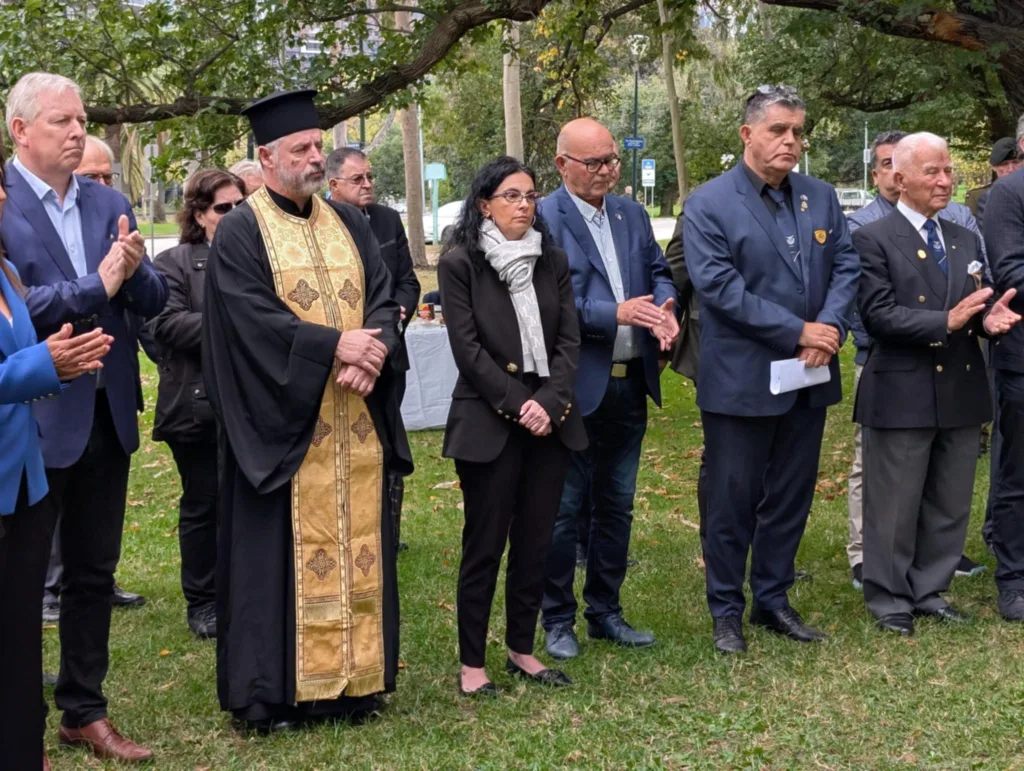
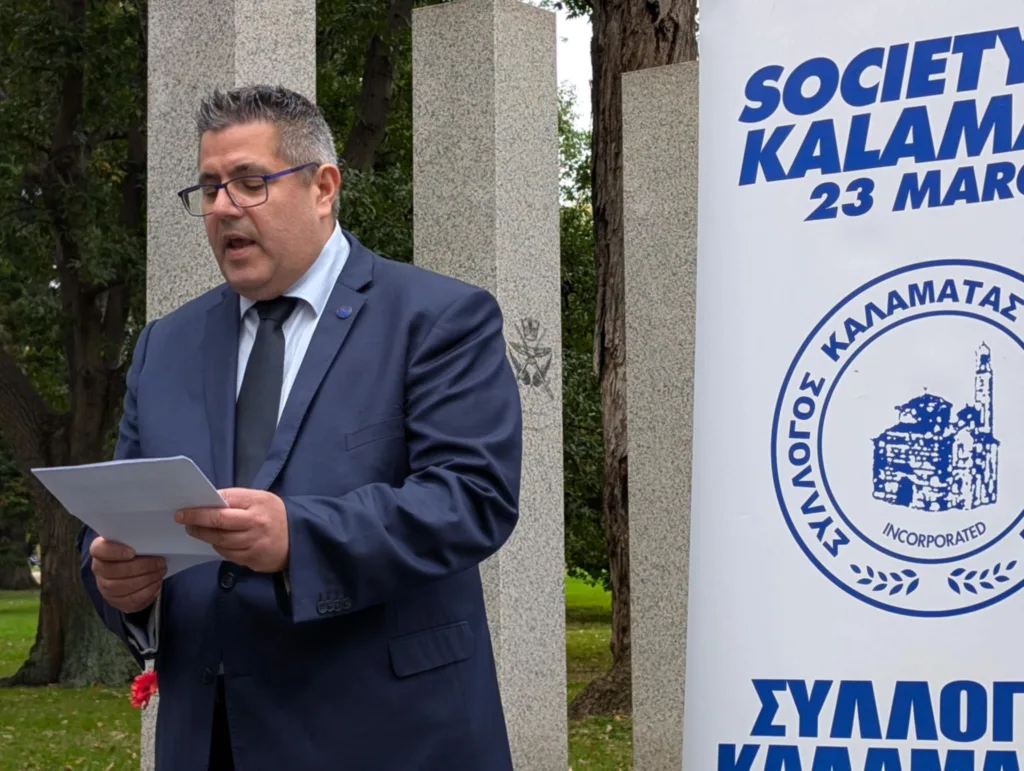
The service also paid special tribute to descendants of those who fought. Shirley Devery, whose father Tom served in the Second and Sixth Battalions; Peter Ford, whose father served with the New Zealand Second Division; and Aron Segal, whose uncle was taken captive at Kalamata, were among those acknowledged.
Malcolm Fallon, president of the 2nd Field Regiment Association, expressed his gratitude to the community, saying, “It is wonderful to be here once again. We look forward to continued support of you to us and us to you.”
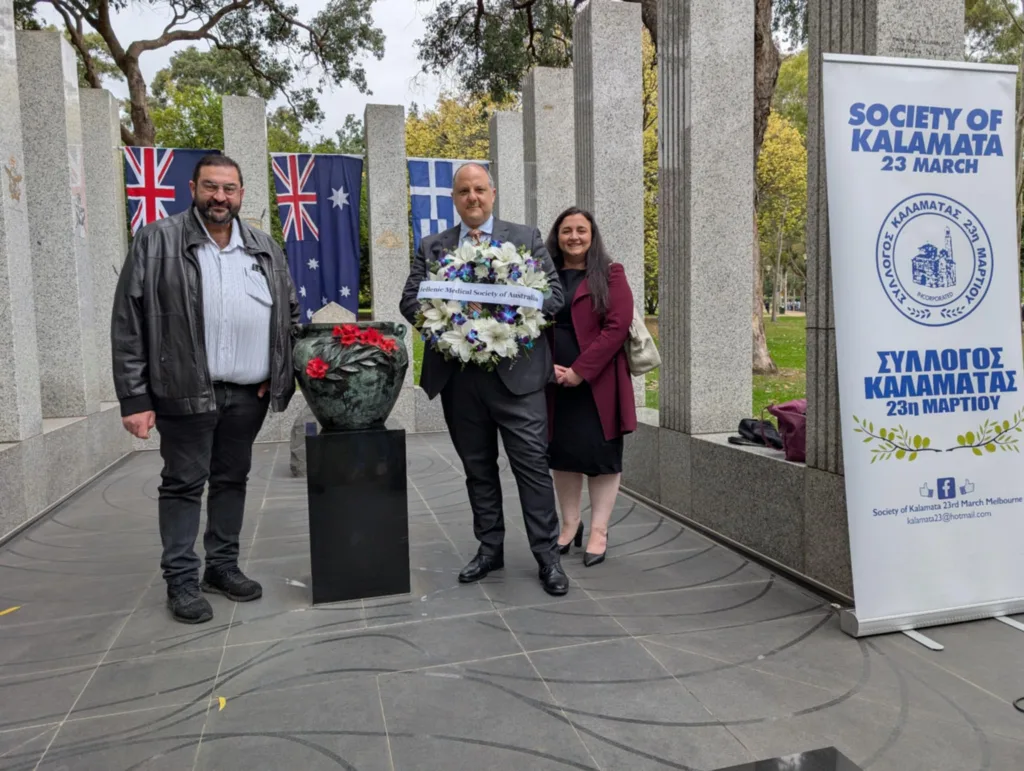
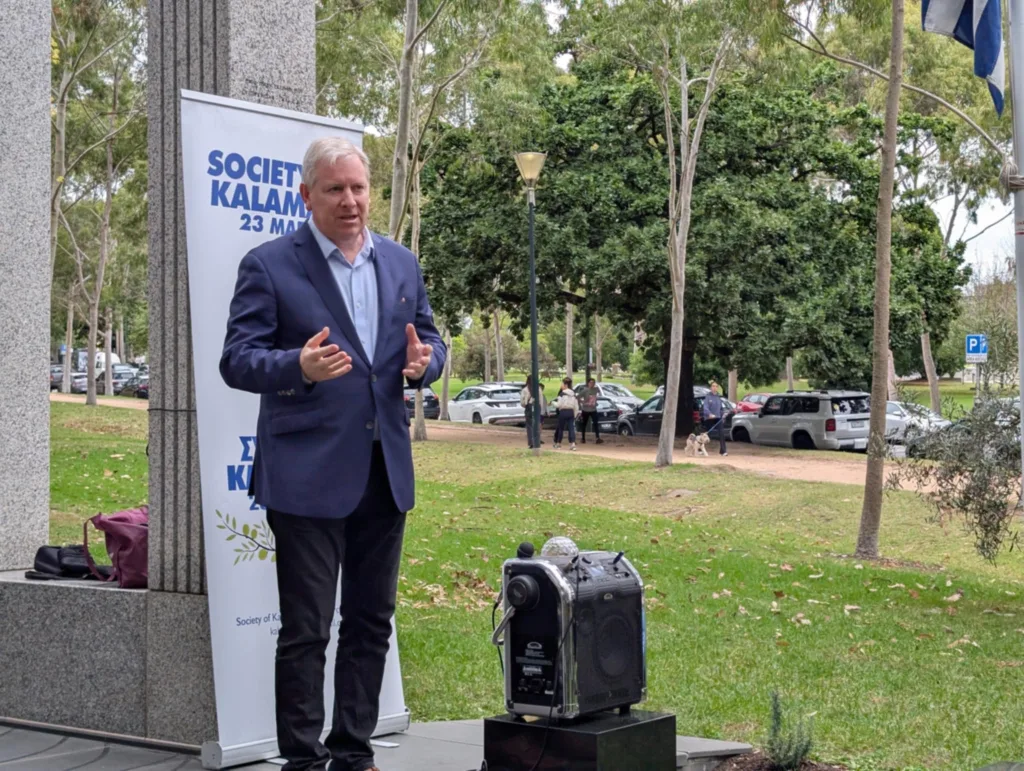
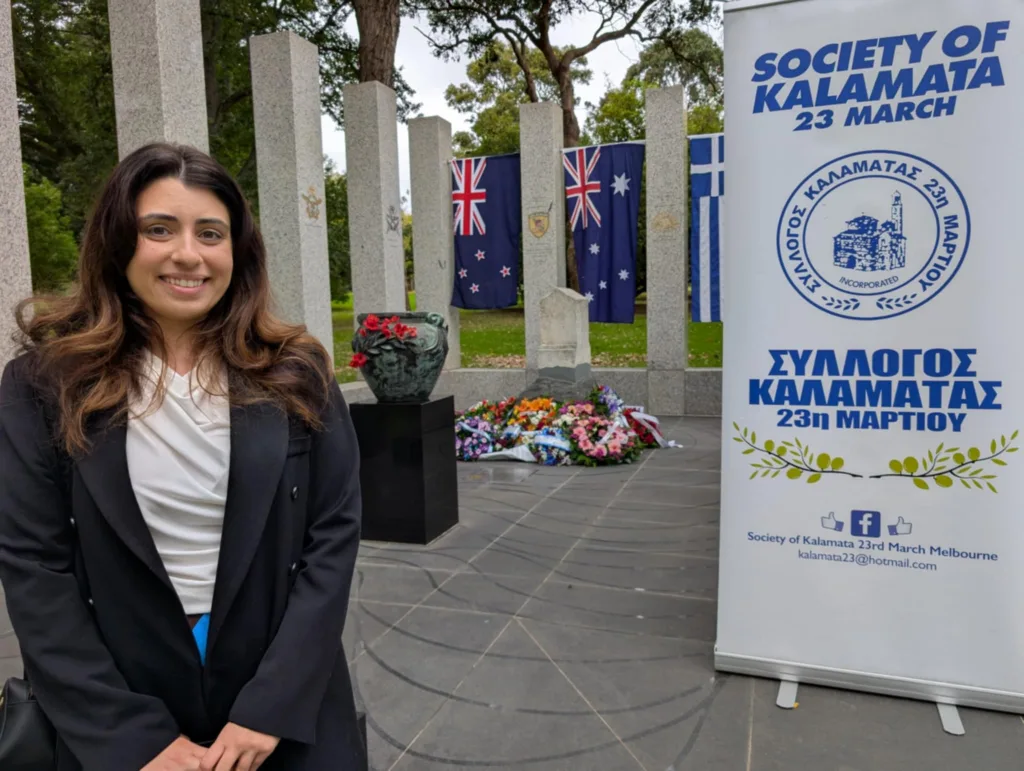
Politicians and community leaders highlighted the enduring ties between Greece and Australia. Member of Parliament David Davis warned, “The world is a very dangerous place. We should learn lessons from what happened through that period in the 1930s and 1940s where democracies stood together and made sacrifices for the greater good.”
Merri-bek City Council Cr Katherine Theodosis spoke of the deep relationship between the two nations, adding, “Greeks and Australians have had a partnership that runs very deep, even back to WWII. My own grandparents were from Exochori in Mani and fought at Kalamata. That connection continues today, as seen through community initiatives like the Sparta Place in Brunswick.”
As wreaths were laid and prayers offered, those present – including the Consul General of Greece in Melbourne Dimitra Georgantzoglou – honoured the enduring friendship forged in times of hardship — a bond that remains unbreakable across generations.
*All photos copyright The Greek Herald / Mary Sinanidis.
